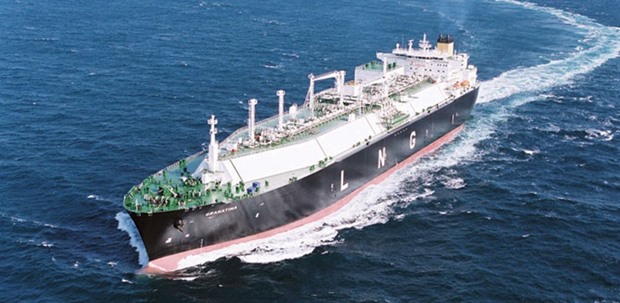The number of liquefied natural gas importers may more than double as a glut damps prices and encourages nations to ditch crude, according to Wood Mackenzie Ltd.
More than 50 countries may switch to LNG, with demand from new importers accounting for about 150mn metric tonnes per year (7.2tn cubic feet of gas) by 2025, amid an oversupply of the fuel and tankers to carry it, according to Noel Tomnay, vice president for research global gas and LNG at the consultant. That’s about 61% of the current global market.
“You’ve got easy access to shipping and you’ve got easy access to supply, and you’re going to get, we believe, further rises in the oil price whereas LNG prices, at spot level, are probably going to be quite flat,” Tomnay said in an interview in London. “The opportunity is going to become increasingly compelling for markets to switch in to gas.”
Egypt, Jordan and Pakistan increased the number of LNG importers to 34 last year, helping offset the first decline in Asian purchases since 2009, according to the International Group of LNG Importers. Markets are forming as countries consider switching to gas from crude after prices for the fuels diverged, with spot LNG in Japan sliding 45% this year as Brent oil gained 35%.
Demand and supply on the LNG market won’t align until 2021, according to the International Energy Agency, which estimates that the crude market will balance next year.
This year, WoodMac expects five new importers of the gas chilled to minus 162 degrees Celsius (minus 260 Fahrenheit) to turn it into a liquid for transport by ship. They are Colombia, Jamaica, Malta, the Philippines and Abu Dhabi.
While markets such as Bangladesh can easily turn to LNG, most the new entrants, including El Salvador, Ghana and Kenya, would be switching from naphtha, diesel and fuel oil and require investment in infrastructure such as new pipelines and power plants, Tomnay said.
That would be a boon for suppliers and companies that provide floating storage and regasification units, which are a quicker and cheaper way to receive the fuel and pump it into local networks than traditional land-based terminals. Hoegh LNG Holdings Ltd will provide an FSRU to Colombia, while Excelerate Energy will supply a floating terminal to Abu Dhabi.
LNG suppliers from French energy company Total to trading house Noble Group Ltd have said they are looking at emerging markets for future demand growth. While it will be harder for trading companies to enter new markets due to financing constraints, they may benefit from relationships formed supplying oil to those markets, Tomnay said.
To help the countries start imports, some suppliers may offer one-stop solutions and develop partnerships for building infrastructure, Tomnay said. Floating power plants may be used to allow a regas facility to operate alongside generators, he said.
Long-term contracts will be needed to support the construction of infrastructure, and governments in most of these markets would prefer a link to oil as a “default position,” to avoid risks associated with other indexes, he said.
“If you can do a pricing deal linked to oil but discounted to oil, it’s going to be attractive,” Tomnay said.

Demand and supply on the LNG market won’t align until 2021, according to the International Energy Agency, which estimates the crude market to balance next year.
